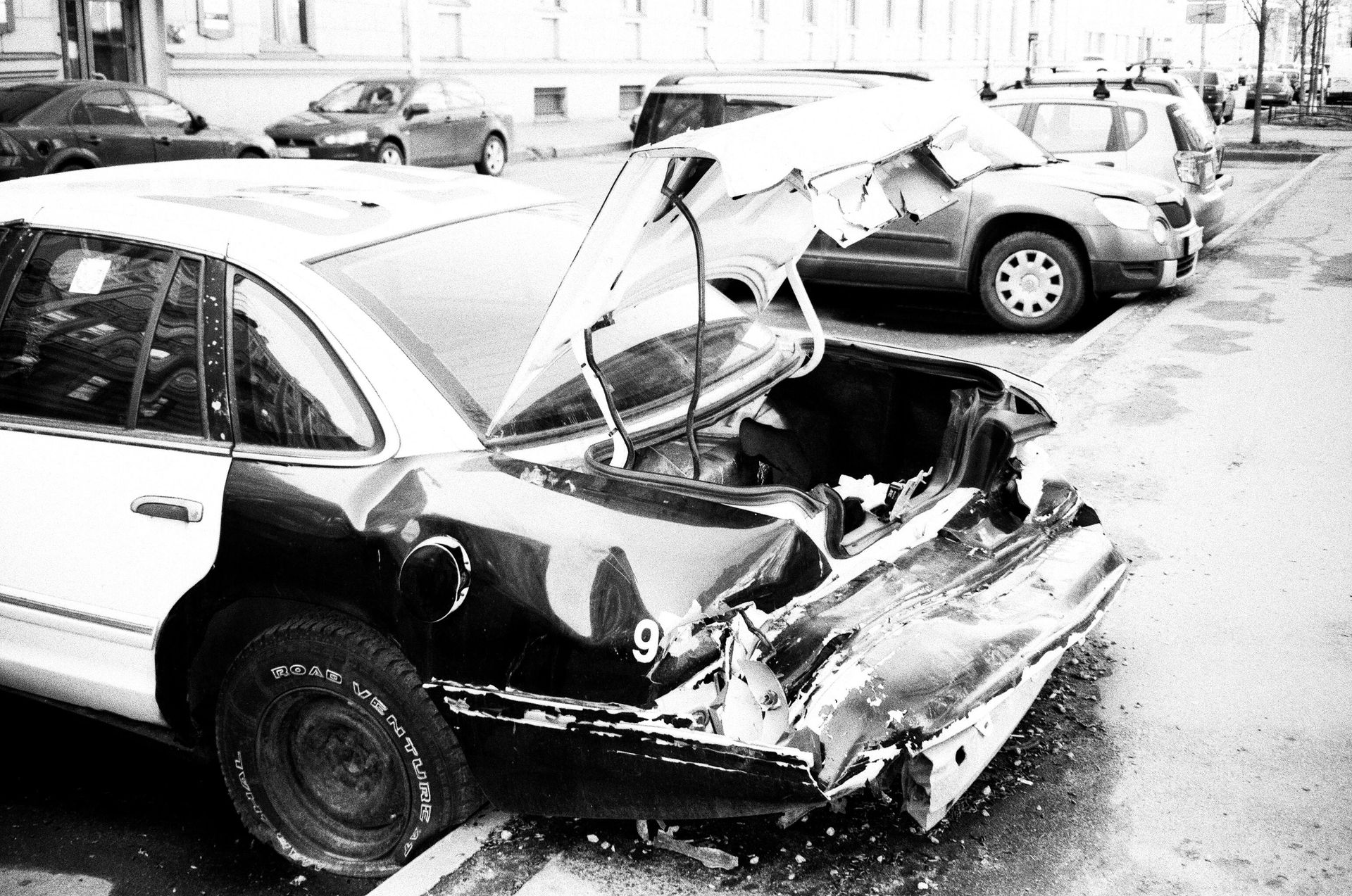What to Do After a Car Accident in Pennsylvania and Philadelphia
A car accident, no matter how minor, can be a terrifying and disorienting experience. In the immediate aftermath, it's easy to feel overwhelmed and unsure of what steps to take. However, the actions you take in the hours and days following a collision in Pennsylvania or Philadelphia can significantly impact your physical recovery, your financial well-being, and the strength of any potential legal claim. Understanding the proper procedures and your rights is crucial to protecting yourself. This blog post will guide you through the essential steps to take after a car accident in the Keystone State, emphasizing the specific considerations for those in Philadelphia.
Michael A. Walker, is the Founding and Award-Winning Principal Attorney of The Walker Firm, and one of Philadelphia and Pennsylvania's Top Attorneys For Car Accidents, Personal Injury and Criminal Defense. Fight Back and Get The Compensation You Deserve.
Immediate Steps at the Accident Scene
The moments immediately following a car accident are critical. Prioritize safety and evidence collection.
1. Ensure Safety and Check for Injuries
Your first priority should always be the safety of yourself and others.
- Assess for Injuries: Check yourself and all passengers for any injuries. Even if you feel fine, adrenaline can mask pain. Ask others if they are hurt.
- Move to Safety (If Possible): If your vehicle is operational and there are no serious injuries, move it to the side of the road, out of the flow of traffic. If anyone is injured or your vehicle cannot be moved, remain in your car with your seatbelt on and turn on your hazard lights.
2. Call the Police and Emergency Services
Even for seemingly minor accidents, it's highly advisable to call the police.
- Dial 911: Report the accident to 911. Request emergency medical services if anyone is injured.
- Official Accident Report: The police will create an official accident report, which is a vital piece of evidence for your insurance claim and any future legal action. This report documents details like the date, time, location, parties involved, and the officer's assessment of the scene and fault. In Pennsylvania, accidents resulting in injury, death, or vehicles that cannot be driven safely must be reported to the police. If the police don't investigate, you must submit a Driver's Accident Report to the Pennsylvania Department of Transportation (PennDOT) within five days.
3. Exchange Information and Gather Evidence
While waiting for the authorities, collect as much information as you can safely.
- Exchange Contact and Insurance Information: Get the name, address, phone number, driver's license number, insurance company, and policy number from all involved drivers. Take photos of their driver's licenses and insurance cards.
- Witness Information: If there are any witnesses, get their names and contact information. Their objective accounts can be invaluable.
- Document the Scene with Photos and Videos: Use your phone to take comprehensive photos and videos of:
- Vehicle damage from multiple angles (your car and others).
- The position of the vehicles.
- Skid marks, debris, and any other relevant road conditions.
- Traffic signals or signs.
- Any visible injuries you or your passengers sustained.
- The overall accident scene and surroundings.
- Do Not Admit Fault: Be polite and factual, but do not apologize or admit any fault, even if you think you might be partially responsible. Any statements you make can be used against you later.
Post-Accident Actions: Protecting Your Rights
Once you've left the accident scene, a new set of critical actions begins to protect your health and your legal rights.
1. Seek Prompt Medical Attention
Even if you feel okay after an accident, it is crucial to get a medical evaluation as soon as possible.
- Undiscovered Injuries: Adrenaline can mask pain, and some serious injuries, like internal bleeding or whiplash, may not be immediately apparent.
- Medical Documentation: Seeking immediate medical attention creates an official record of your injuries, linking them directly to the accident. This documentation is essential for any personal injury claim. Follow all medical advice and keep detailed records of all treatments, medications, and appointments.
2. Notify Your Insurance Company
Report the accident to your own insurance company as soon as you reasonably can.
- Factual Account: Provide them with a factual account of the accident. Avoid speculating about fault or the extent of your injuries.
- Do Not Provide Recorded Statements to Other Insurance Companies: If the other driver's insurance company contacts you, politely decline to provide a recorded statement or discuss the accident details until you have consulted with an attorney. Their primary goal is to minimize their payout.
3. Keep Detailed Records
Organization is key to a successful claim.
- Accident Journal: Maintain a detailed journal of your physical and emotional state, pain levels, limitations on daily activities, and how the injuries have impacted your life.
- Financial Records: Keep track of all expenses related to the accident, including medical bills, prescription costs, lost wages, and vehicle repair estimates or rental car costs.
- Correspondence: Keep all correspondence, emails, and notes from conversations with insurance adjusters, medical providers, and anyone else involved in your case.
Legal Considerations in Pennsylvania and Philadelphia
Pennsylvania has specific laws that govern car accident claims, including the "choice no-fault" system and statutes of limitations.
1. Pennsylvania's "Choice No-Fault" System (Limited vs. Full Tort)
Pennsylvania is a "choice no-fault" state, meaning drivers choose between "Limited Tort" and "Full Tort" coverage when purchasing their auto insurance.
- Limited Tort: This option typically has lower premiums. If you choose Limited Tort, you are generally restricted from suing for pain and suffering damages unless your injuries meet a specific "serious injury" threshold as defined by law. You can still recover for economic damages like medical bills and lost wages.
- Full Tort: This option allows you to sue for all damages, including pain and suffering, regardless of the severity of your injuries, if the other driver was at fault.
Understanding your tort election is critical, as it directly impacts your ability to recover certain types of damages.
2. Comparative Negligence Rule
Pennsylvania follows a modified comparative negligence rule. This means that if you are found to be partially at fault for the accident, your compensation will be reduced by your percentage of fault. If you are found to be more than 50% at fault, you cannot recover any damages from the other party.
3. Statute of Limitations
In Pennsylvania, the statute of limitations for most car accident personal injury claims is two years from the date of the accident. This means you generally have two years to file a lawsuit in court. Missing this deadline can result in losing your right to pursue compensation. There are very limited exceptions, so acting promptly is crucial.
Why You Need an Experienced Car Accident Attorney
Navigating the aftermath of a car accident, especially when dealing with injuries, insurance companies, and complex legal procedures, can be overwhelming. This is where an experienced car accident attorney becomes an invaluable asset.
1. Expertise in Car Accident Law
A knowledgeable attorney understands Pennsylvania and Philadelphia's specific car accident laws, including tort elections, comparative negligence, and reporting requirements. They can assess your case, determine liability, and advise you on the best course of action.
2. Dealing with Insurance Companies
Insurance companies, even your own, are businesses focused on minimizing payouts. An attorney will handle all communication and negotiations with insurance adjusters, protecting you from common tactics used to devalue or deny claims. They will ensure your rights are protected and advocate for the full compensation you deserve.
3. Maximizing Your Compensation
An attorney will meticulously investigate your accident, gather crucial evidence (police reports, medical records, witness statements, accident reconstruction), and accurately calculate the full extent of your damages, including medical expenses, lost wages, pain and suffering, and property damage. They will fight to recover maximum compensation, whether through settlement negotiations or, if necessary, litigation.
Conclusion
A car accident in Pennsylvania or Philadelphia can be a traumatic event with lasting consequences. The steps you take immediately after the crash and in the days that follow are paramount to protecting your health, your rights, and your future. From ensuring safety and contacting authorities to seeking medical attention and carefully documenting everything, each action plays a vital role.
However, the legal complexities of car accident claims, especially with Pennsylvania's unique laws, can be daunting. Don't face this challenge alone. Michael A. Walker, the Founding and Award-Winning Principal Attorney of The Walker Firm, is one of Philadelphia and Pennsylvania's Top Attorneys For Car Accidents, Personal Injury and Criminal Defense. With dedicated and aggressive legal representation, The Walker Firm is committed to helping you Fight Back and Get The Compensation You Deserve. If you or a loved one has been involved in a car accident, contact The Walker Firm today for a consultation.
Disclaimer: This blog post is intended for informational purposes only and does not constitute legal advice or create an attorney-client relationship. 1 Auto accident and insurance laws in Pennsylvania are complex and fact-specific. You should consult with a qualified Pennsylvania personal injury attorney regarding your particular situation. Contact The Walker Firm for personalized legal counsel.











